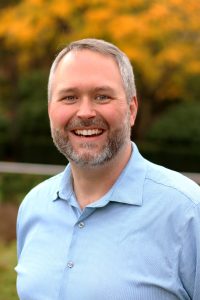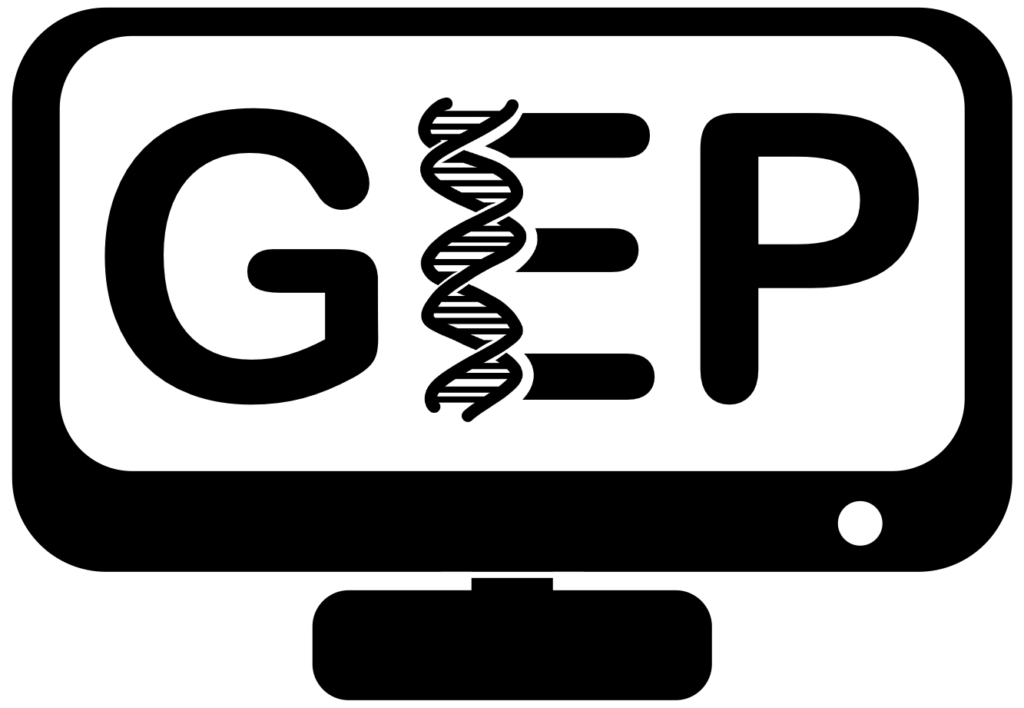Education Research
Publication Workflow
The Science Education Publication Workflow Subcommittee (of the Assessment Committee) was formed and conducted its work during Spring 2022. The impetus to form this subcommittee (Amy Hark [chair], Chris Jones, Scott Tanner, Melanie Van Stry, Ana Almeida, and Jenna Roecklein-Canfield) and our work grew out of discussions in Session S of the 2021 Alumni Faculty Workshop. We have drafted a new process by which science education research projects within the GEP may be initiated, reviewed, and supported along with a rationale for this proposed change. In doing this, we have met four times as a subcommittee, regularly consulted with the Assessment Committee, and engaged in asynchronous work. This included consulting with and responding to feedback from Laura Reed as the GEP Program Director and with the then Chair and Vice Chair of the Curriculum Committee (Maria Santisteban and Don Paetkau) and Sally Elgin, GEP Director Emeritus.
This proposal was shared in the May and June 2022 GEP Newsletters for GEP members’ review and comments and presented to the GEP membership during the 2022 Alumni Faculty Workshop. It was discussed and revised by the Steering Committee in Summer 2022.
Adopted 09/16/2022 by Membership Vote
This process would be used for developing science education research projects for which GEP support is needed for 1) funding, data collection/storage, and/or assessment OR 2) for projects that use data from multiple GEP members as part of the study (could be specific to one of the scientific projects, to faculty and students at certain institution types, etc.).
Given changes in the science education publishing landscape, science education questions need to be identified and planned prior to data collection. It has become increasingly difficult to publish work that was not originally conceived with a theoretical framework and data collected with specific methodology designed to address the given question(s). This approach may drive future grant applications, rather than being secondary.
It is unclear how many proposals there might be or how often proposals will come from outside the Assessment, Curriculum, or Steering Committees. That said, having guidelines increases clarity for all GEP members who might wish to be involved in this type of work. We want a system that is fair, especially as the GEP has increased its number of members and not everyone may easily be involved in all conversations.
Coordination is important with respect to GEP resources and to limit or consolidate surveying of GEP members. With consideration of survey fatigue, the Steering Committee has decided that we cannot promote new assessment projects among our members unless they do not overlap with or interfere with current GEP educational research goals.
Finally, proposal review is important to help ensure that GEP-supported science education projects are poised to be executed in a way that can lead to presentation/publication.
GEP members with shared interest in a particular science education research area can form a Working Group or one might be created by the Assessment Committee or other GEP entity.
Keeping each Working Group small helps to ensure commitment and investment of all members, who will likely assume the responsibility and reward of being co-authors. We have always had a smaller group invested in moving a given project forward, however, it is important to note that this plan does represent a departure from our previous practice in terms of authorship. Recent experience with GEP sci ed manuscripts and discussion at the Summer 2021 PEER workshop supports the idea that reviewing & disseminating an assessment instrument and reviewing & commenting on a manuscript is often not recognized by journals as sufficient contributions for authorship.
Given the investment that all participating members make in deployment and assessment of GEP materials for any given study, Working Groups will be asked to negotiate with the editor of the target journal(s) to see if the author list can include all participating faculty members, or failing that, whether “and contributing faculty of the GEP” with these names included somewhere within the manuscript is acceptable. It is also important to consider whether these faculty can be identified as co-authors in PubMed. The Working Group should also consult with multiple journals to find one favorable to the goal of listing all authors. Even if a Working Group initially supports this negotiation for a broader author list, it makes sense to be aware of and prepared for the current publishing landscape, which includes not only changing expectations for Discipline-Based Education Research (DBER) but also many journals asking that the role(s) of each author be clearly identified within their standards for authorship.
There is a related question of how to encourage engagement with assessment instruments and other GEP activities without a link to authorship. We suggest that the GEP continue to preferentially support junior/non-tenure-track/adjunct faculty by encouraging and supporting them in leadership roles (e.g., presenting author on a poster at a national meeting, committee leadership) that can be seen as part of their professional activity for review and promotion. We also invite the GEP to think collectively about ways we can all be recognized for the work we put into this organization.
This ensures input from across the standing committees. Steering Committee members cannot review or vote on proposals for which they are part of the Working Group, though they may be questioned for clarification of project goals. If a member must recuse themselves, an alternative steering committee member should be recruited to ensure each standing committee is represented during the review.
Suggested proposal due dates are September 15, December 15, March 15, and June 15, with decisions expected within 6-8 weeks. Working Groups may submit a proposal at any time and the Steering Committee will review as soon as possible, typically within three months. A revise and resubmit phase may be part of the process after the initial decision and feedback.
Executive Summary (200 words): Required if the overall proposal exceeds 1,000 words.
Statement of question(s) and hypothesis(es) framed with background literature (200-500 words): This should include identifying how the proposed study will add to the education research literature and/or be useful to the community. Related to point 5, does this project seek to inform undergraduate education in genomics, STEM education, or undergraduate education more broadly?
Outline of project work planned for each year (200-500 words)
Names of working group members and brief description of each member’s expertise and expected role with respect to the proposed project (200-500 words). If someone within the Working Group is not positioned to serve as the Assessment Consultant, please identify that need in the next section.
Note: It is important that the Working Group considers the contributions of the GEP members as a whole to the ultimate success of the assessment project and endeavors to engage all impacted individuals in the discussion of goals. Further, that co-authorship on GEP publications can be central to successful professional advancement for individual members and thus should be prioritized whenever possible.
Outline of what central GEP support is needed for this project (200-500 words) — an Assessment Consultant (with what particular expertise? e.g., sample size/statistics), administrative support, survey management, data storage, etc.
Keep in mind that the GEP typically supports 1-2 Assessments Consultants who are available for work on various projects. If you wish to work with someone else who requires payment (rather than simply serving as a member of the Working Group and co-author), this will be dependent on availability of GEP funds.
If no GEP staff or central resources are needed, please briefly address how assessment design and data storage and analysis will be handled. Please note: The GEP Project Leader should usually be a member of the working group for a GEP-wide project, as this allows for use of GEP-collected data and for the umbrella IRB to apply. In other cases, please identify the Working Group member who will take the lead on preparing an IRB application and their institution where the application will be submitted.
Address how this work might help the GEP (~200 words) – does it connect to current grant aims, curricular projects, etc.?
As noted above, the Steering Committee has decided that we cannot promote assessment projects among our members unless we are certain they do not overlap with or interfere with other GEP education research goals.
Name of target journal(s) or other planned means of disseminating ultimate findings: Based on this, who does the Working Group envision being eligible for authorship?
For approved projects, Assessment Consultant identified (if not already) and additional working group members recruited as needed. At least one member of the Working Group should be on or join the Assessment Committee for the remainder of the project.
These individuals assume project responsibility and would be expected to be primary authors of the resulting manuscript(s). With this in mind, we recommend no more than ~8 individuals be part of the final Working Group.
Having a member of the Assessment Committee as part of the final Working Group allows for the exchange of ideas at Assessment Committee meetings. For smaller scale projects involving only a few GEP members and not requiring central GEP support, regular written updates may be sufficient; this will be decided by the SC.
Theoretical framework established, IRB approval sought (note: the umbrella IRB can only be used if GEP Director is a PI), funding applications submitted (if needed; note that funding opportunities often motivate the questions), assessment plans developed; depending on timing, study may begin.
Study conducted, data analyzed, presentations & manuscripts prepared
Consultants

David Lopatto
Student Assessment Consultant

Sean Gehrke
Faculty Assessment Consultant

Christine Pribbenow
External Evaluator
- Page Last Updated: August 20, 2025
